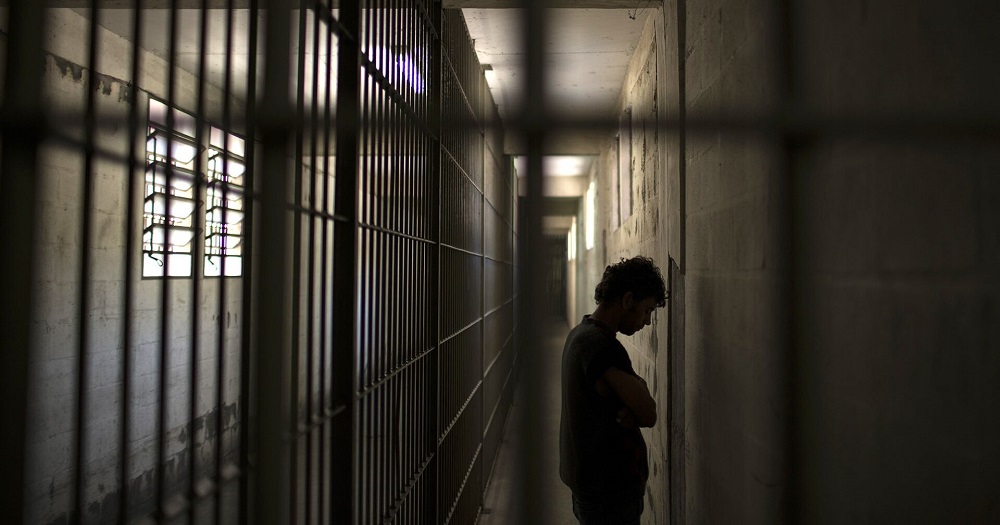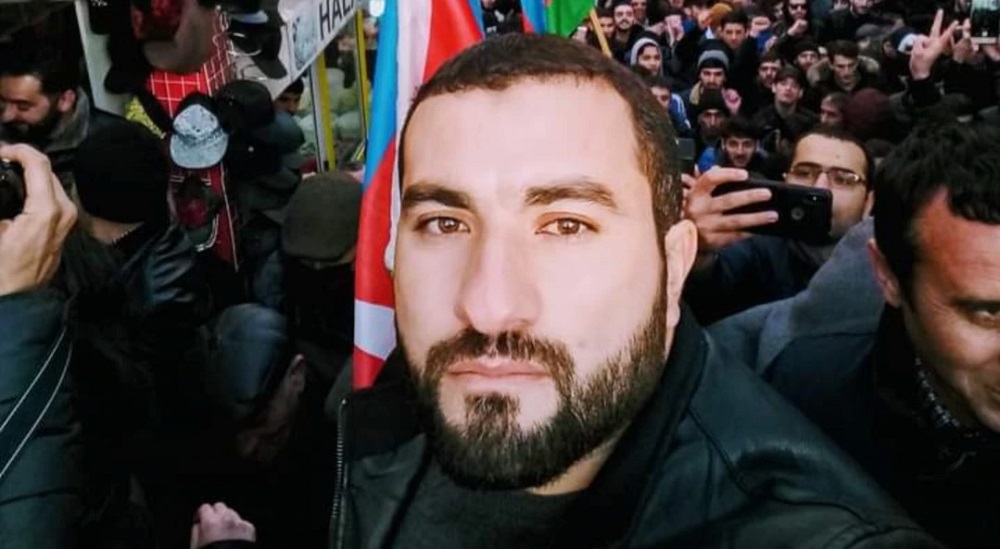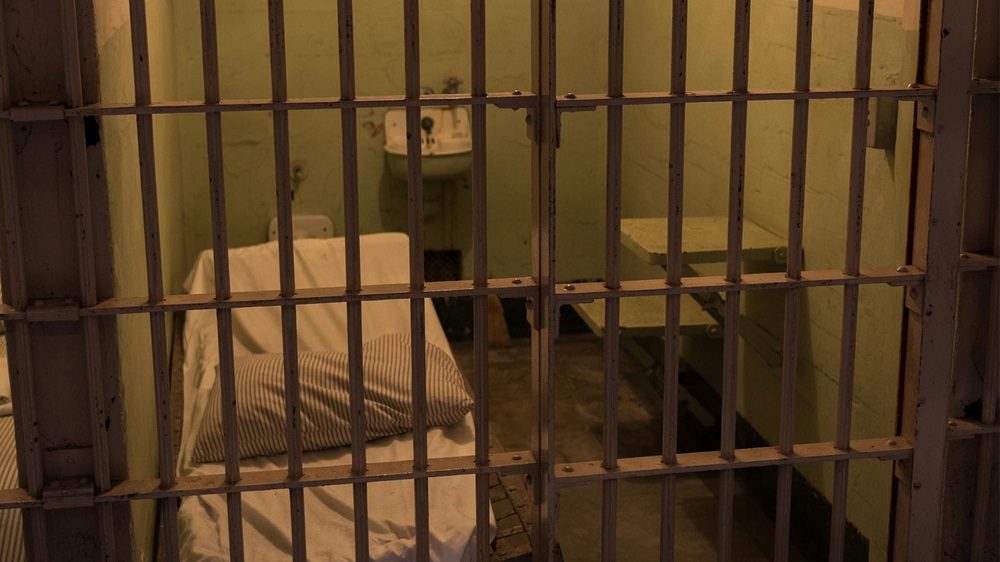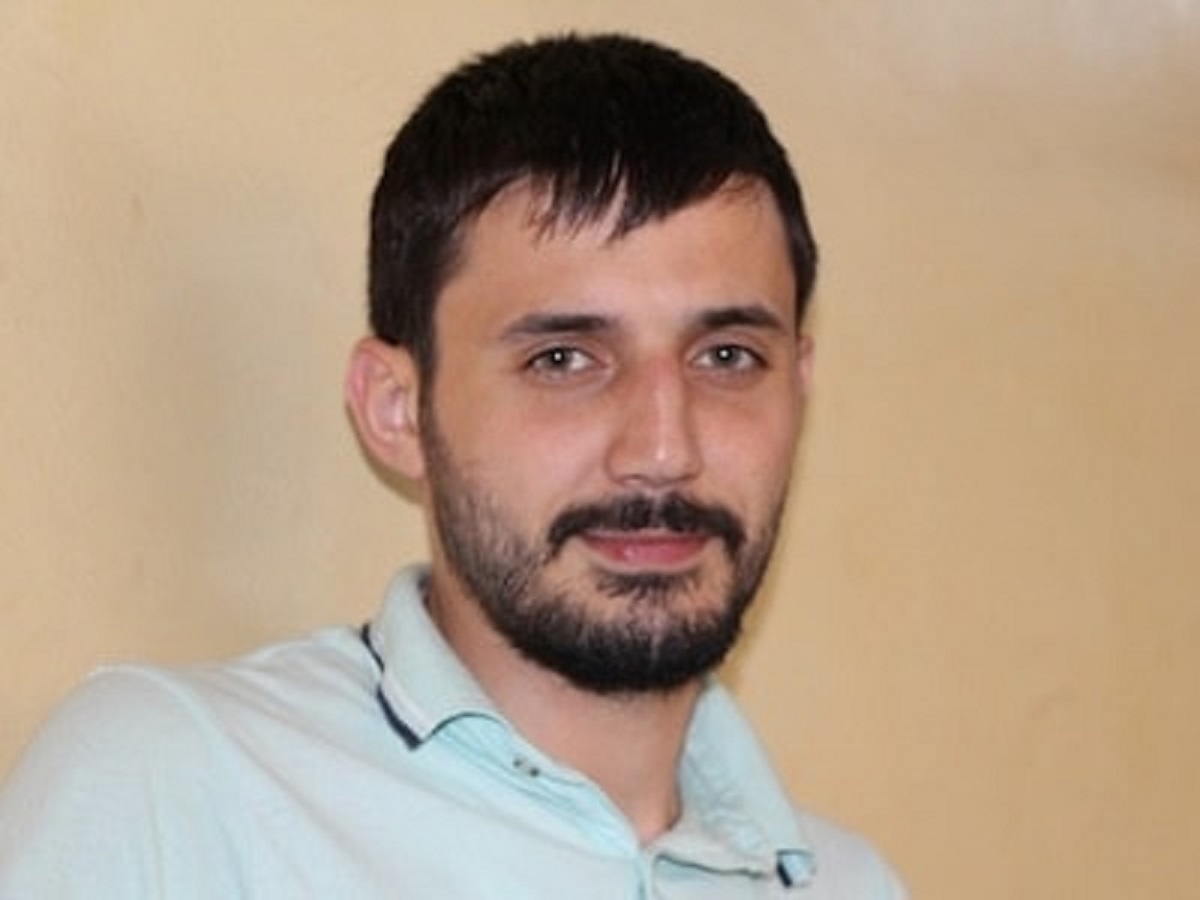"I was left chained to the bed without food and water for three days"
Torture of prisoners in Azerbaijan
“They started to beat me when I did not agree with injustice in prison. My hands were tied, and they would kick me, right on my face. Then they chained me to the bed with my hands. For three days I was left me that way without food and water.”
Rashid Gubadov was arrested twice in the city of Salyan, 150 kilometers south of Baku. The cases were not political, but ordinary criminal matters.
- A young chef in Baku turns his flat into a restaurant
- Men don’t cry? – Stories of male victims of domestic violence in Azerbaijan
- How homosexuals live in the most homophobic country in Europe
The former prisoner says that from 2009-2014 he survived torture in prison at different times. The last case occurred shortly before his release. According to Gubadov, he was assaulted for not complying with rules.
“In prison there are certain things that need to be done. I was warned that if you refuse, you will learn. When I didn’t comply, they beat me up. When they chained me to the bed, a cellmate said that my face was swollen, bruised. Three days later I was freed. A few days after that water flowed from my eyes.”
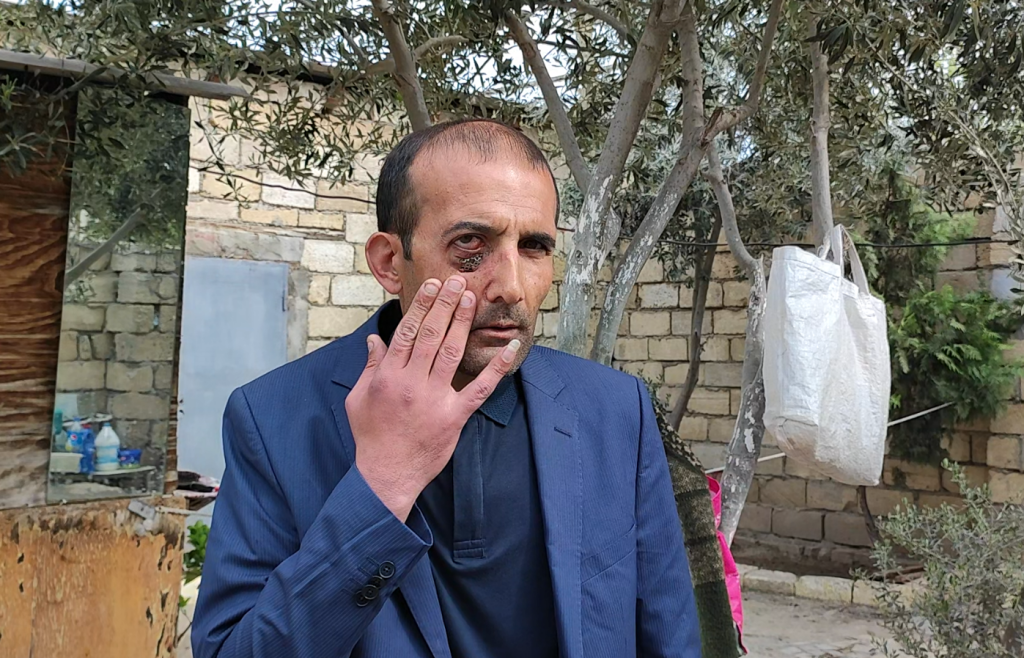
Local and international organizations on torture
The report of public association “The Center for Investigations against Torture” dated June 5, 2022 states that prisons in the country have turned into torture chambers: “In these institutions, prisoners encounter severe torture, and sometimes die.”
The UN Committee against torture, the Committee on Human Rights of the International Covenant on Civil and Political Rights, the Committee on the Elimination of Racial Discrimination, all observe that the country continues to see problems with torture and impunity of those responsible.
The US State Department said in 2021 that despite a legislative ban on torture of prisoners in Azerbaijan, torture and other forms are abuse are used to extract confessions.
“After being tortured, cancer formed in my eye”
According to Rashid Gubadov, after persistent appeals to the Central Republican hospital he was sent to the National Ophthalmology Center.
“After they didn’t get any result there, I was returned to prison. But I was put in a different ward, not general population. Thanks to the people there, money was raised for an operation. It turned out that cancer had developed in my eye. Even after the operation I am in pain and pus flows from my eye. Sometimes I can’t stand up.”
32 sentences from the ECHR for torture and inhuman appeal
The reports of the Committee of the Council of Europe for the Prevention of Torture, following six visits to the country in 2004-2017, indicate that the use of torture and other forms of physical violence by the police and other law enforcement agencies, and that corruption and impunity in general in the law enforcement system have become systemic and widespread.
The ECtHR found 44 violations of Article 3 of the European Convention for the Protection of Human Rights and Fundamental Freedoms in 2021.
“They beat me, threatened my family, gave me electric shocks”
Former political prisoner Alizamin Salaev was also the victim of prison abuse. He was arrested several times.
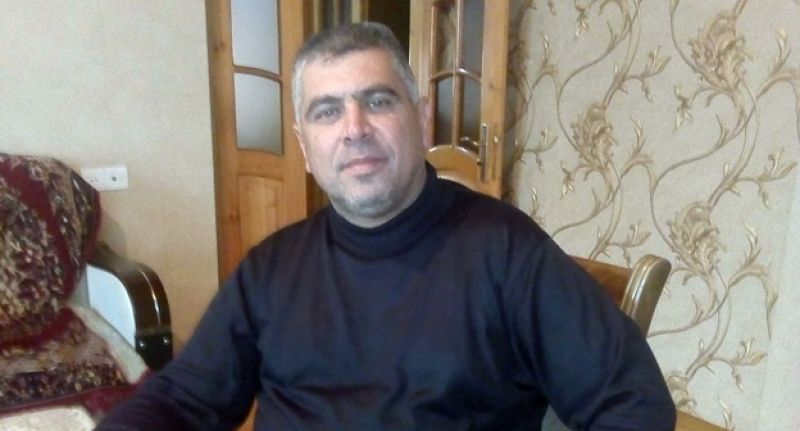
“From 2017 to 2020, he was repeatedly tortured at police stations. There was also torture in 2020, when he was in prison.
They beat me, threatened my family, tortured me with electric shocks, while I was hanged from the ceiling. They kept me hanging for days and used electricity on me, even my genitals.
I begged them to kill me.
All this was filmed on video. The torturers demanded that I ask for mercy from the Azerbaijani authorities, from Ilham Aliyev and Mehriban Aliyeva.
“There is no such thing in the ICRC reports”
Press Secretary of the Penitentiary Service Mehman Sadigov calls these allegations slander.
“All this is an absolute lie, slander, not a single prisoner has been tortured in any of the correctional institutions, and such facts have not been recorded, and in general there is no such thing.
This is not in any of the reports of the International Committee of the Red Cross, and the Committee against Torture also repeatedly visited correctional institutions and conducted monitoring. Not a single case of torture was observed.
It is a fact that none of the prisoners was tortured in any of the correctional institutions,” Mehman Sadigov claims.
“The Red Cross does not publish data on torture”
Ilaha Huseynova, head of the communications department of the Azerbaijani office of the International Committee of the Red Cross (ICRC), noted that the committee maintains strict secrecy about its observations in prisons across the world, including torture of prisoners in Azerbaijan.
“Activities in prisons are decided according to bilateral negotiations. The attitude towards prisons is the same in all parts of the world, and the non-publication of information should not imply anything good or bad. We never publish either their contents or their names. The statistics take into account the number of visits per year. This is not inaccurate either, because we can visit the same person several times.”
The response to our request from the Ombudsman of Azerbaijan says that the Ombudsman itself and the national preventative group of the Ombudsman investigated 184 cases of torture of prisoners in Azerbaijan.
“Among those with whom the meetings were held, some complained about abuse; these complaints were investigated, the question was raised before the Prosecutor General’s office and the investigation of these issues based on the materials collected was ordered, and subsequently handed to the courts.”
“Complaints to the ICRC and the Ombudsman did not prevent torture”
Alizamin Salaev claims that his complaints against the ICKK and the Ombudsman did not prevent torture.
“The Red Cross asked about living conditions, on other issues they said that they were not authorized. And after the arrival of the Ombudsman, I was beaten again. The Ombudsman was not recognized in prison. They said, and who appointed the Ombudsman?”
“Demanded evidence against Ali Kerimly”
Allegations of torture are not limited to prisons. Beatings, humiliation, abuse also take place at police stations and the Department for Combating Organized Crime.
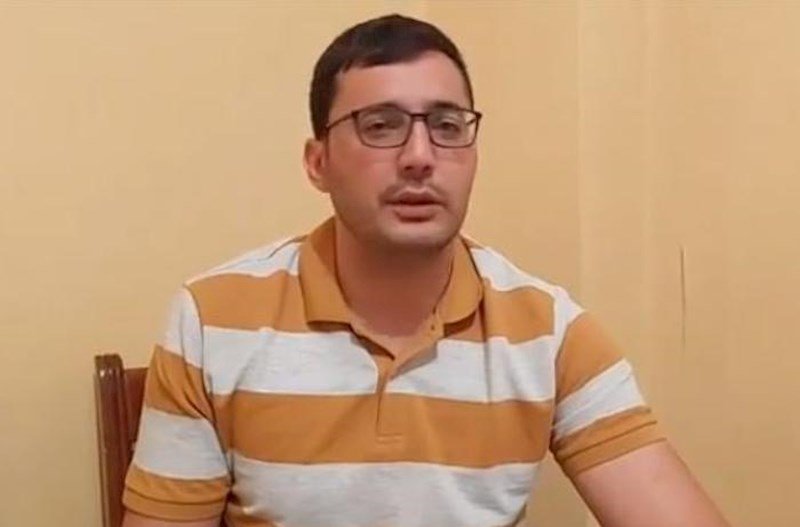
Former political prisoner Agil Maharramov says he was tortured by officials, even department heads at the Organized Crime Control Department.
“Kicks, punches, slaps, swearing… there are still problems with my leg. Then they tortured me with an electric current. There were five of them. Three were especially active. They put me on a chair, handcuffed my hands from behind and put electric wires on my hands.
They demanded evidence against Ali Karimli (the chairman of the Popular Front Party, of which he is a member) and that I accept fictitious charges: that we brought a huge amount of money into the country illegally and transferred the money to Ali Karimli.”
“In the modern era of information technology, there is no need for torture”
The head of the public relations department of the Ministry of Internal Affairs, Elshad Hajiyev, denied allegations of torture in the Organized Crime Control Department:
“This person’s allegations are completely groundless and do not reflect reality.”
According to Hajiyev, there is no information about unacceptable actions on the part of employees of his department.
“There is no need for this. We live in the modern era of information technology and to confirm the actions committed by a specific person, the internal affairs bodies have a sufficient amount of information and electronic resources,” he said.
“These statements are based on these people asserting their political status, their political essence by such methods, and we categorically reject these statements.
There are non-governmental organizations that take such statements into account as facts. They receive such information from social networks, from the status of people who are trying to strengthen their political positions in this way. And all this is based on personal statements; they have no objective grounds,” Elshad Hajiyev says.
But in the case of Rashid Gurbanov, who has no political status, there are allegations that people arrested for ordinary crimes are also tortured in prison.
What should a prisoner who is being tortured do?
Lawyer Samed Ragimli says there is a law on the rights of those contained in prisons. Under this law, victims of torture have the right to have their case investigated.
“Prisoners protest by cutting their hands, throat and stomach”
According to former prisoner Agil Magherramli, it is almost impossible to complain about what goes on.
“There are unwritten laws. Complaints usually end with a challenge, because the head of the prison either threatens whoever complains or they are intimidated with the help of prisoners controlled by the leadership. In most cases prisoners protest by cutting their hands, throat and stomach. Sometimes a hunger strike.”
Torture of prisoners in Azerbaijan










